I’ve dabbled in meditation before.
In one vivid and disastrous experience in April 2016, I was bumming around Hyde Park in London, napping on a bench and listening to a meditation on Headspace.
Oh God, I wanted to meditate at that moment…
I had just gotten kicked out from my ex-friend’s flat.

You see, he invited me to stay with him in London for a month. Then, just a few days after I arrived, he… uh… CHANGED HIS BLOODY MIND.
So I’ve practiced meditation before…
But I just wasn’t consistent by any means.
Fast-forward to a random day in January 2017 when I said, What the hell, and committed to 21 straight days. (More on that later.)
14 months later, I haven’t missed a single day. That’s even after my adventure in Montréal, getting back home at 2am some nights, vacationing with a bunch of people in the mountains, and going to Vegas.
[7/11/2018 Update: I’m up to 540 days now. And that’s even after 7 weeks in Europe.]
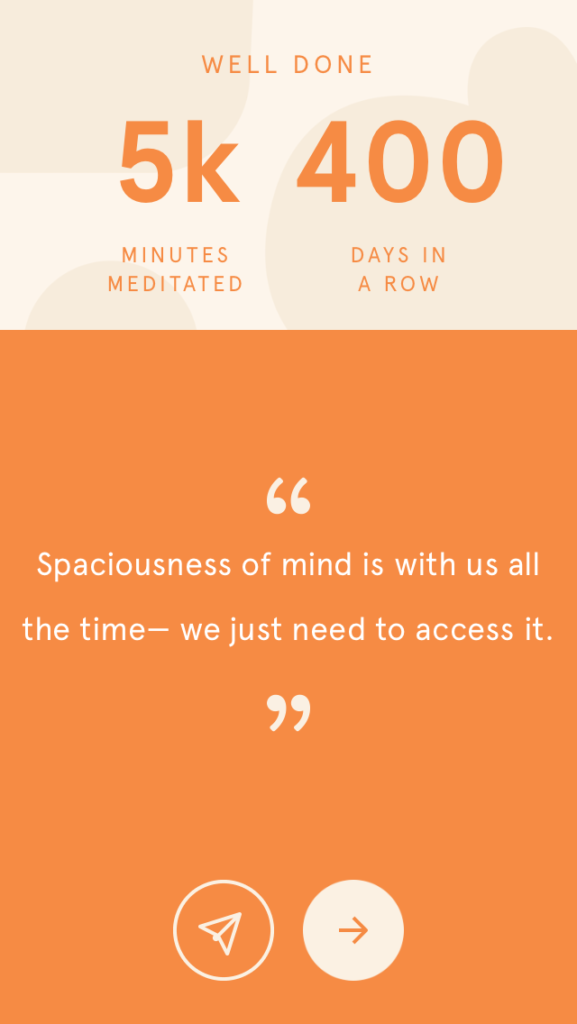
But it was NOTHING like I expected.
In this article, I’ll share with you what happened, what didn’t happen, what I learned, and my honest opinion on meditation and why so many people seem to get it wrong.
I, however, am no expert on the subject. I could be wrong myself.
But this is just the thoughts and experience of ol’ Yeung Money.
[Also, keep in mind, it’s hard to capture all the intricacies and subtleties of mindfulness in one blog post… so feel free to ask questions in the comments and I’ll try to add more detail.]
With that said, I’ll start with the #1 question I get:
“How do you build the habit?!”
How To Start Meditating
Nowadays, I don’t even THINK about it. It’s just a part of my daily routine — like brushing my teeth, checking the mail, or… uh… visiting ESPN.com.

But building habits ain’t easy — if it was, every guy would have a six-pack and bench press 300lbs. (Or something like that.)
And hell, if I had a dollar for the number of times I did NOT want to meditate during the first few weeks… well… I would have A LOT of dollars.
But here are 3 things that worked well for me:
1) Bear down for 21 days. Why? The belief is “it takes 21 days to build a habit,” which was coined by Dr. Maxwell Maltz in the 1950’s. While it’s hard to say the exact amount of time to engrain a new habit, 3 weeks is a solid amount of time to get over the initial friction, learn a new routine, and get acclimated.
2) Give yourself an out. I promised myself, if I didn’t like meditating after doing it for 3 straight weeks, I’d stop. That way, I didn’t have to worry about doing something “for the rest of my life;” it was just a test drive. (In other words, when I started, I had NO IDEA I would make it this far.)
3) “Keep the streak alive.” Headspace has this devilishly clever screen that pops up at the end of your meditation, which shows the total minutes you’ve meditated all-time and number of consecutive days you’ve meditated.
Once I got in logged around 80 straight, I was more motivated to AVOID reseting to “0.” So I kept going.
By the time I was in the 200’s, there was no way I was going to skip a day.
It was a little psychological trick to create loss aversion.
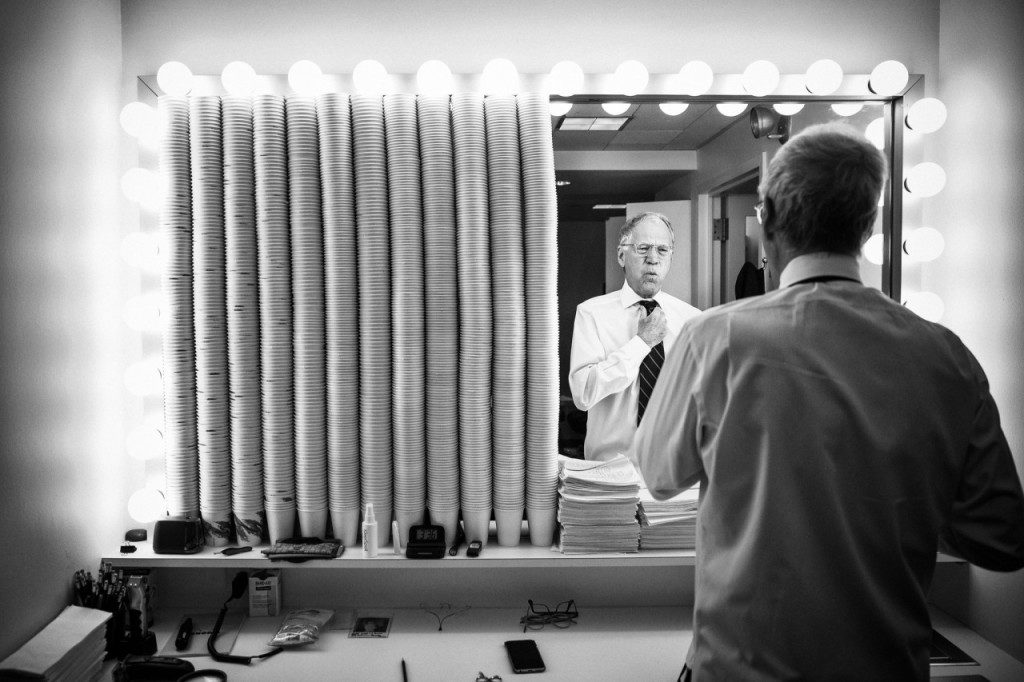
What about gradualness?
I’m not the biggest fan of “easing into” things when there’s no risk of “stinging failure.”
Talking to women? Yeah, there’s a risk of stinging failure. (At first, however. Then it gets better.) Meditation? There’s no risk!
Thus, there’s no significant upside to doing “1 minute of meditation, then 2, then 3,” or whatever — just start with 10 minutes a day. It might suck for a bit, but again, it’s only 21 days.
Embrace the suck.
That time will elapse anyway — you might as well have something positive to show for it.
So What Happened?
Before I could even fathom meditating for 400+ days in row, I heard a lot of hype about it.
For example, many famous CEOs, entrepreneurs, “lifestyle designers,” athletes, etc. swear by meditation.
To them, it was a “life-changing” habit that helped them succeed.
But My Life Didn’t Dramatically Change
I didn’t suddenly become a woo-woo spiritual guy.
I didn’t suddenly become “happy” all the time.
And I still had moments when I felt frustrated, anxious, angry, upset, etc.
Like this, kinda.
Meditation did not “rid” me of those emotions.
(Also, at no point did I ever land a contract with a company and think, “Boy, I’m glad I meditated!”)
Honestly, I’m not even sure that’s the goal.
I might be wrong, but to me, meditation is a practice — it’s something you stick with and work at.
Even when you do it, you will have good days and not-so-good days. Some days you feel tense and heavy; other days you feel calm and light. Some days there’s a lot going on in your mind; other days, it’s easier to find a place of calm.
I think some people hope meditation creates an A-HA! change in their lives. Suddenly, they’re “at peace”… they don’t get mad… they feel blissful all the time…
I mean MAYBE.
But it’s not about MAKING something happen; the key is simply to become present and aware. To watch. To refrain from judging. To come home to yourself.
And from there, interesting things start to happen.
I Became More Aware Of My Thoughts
Meditation helped me listen to what was going on “upstairs” during the day.
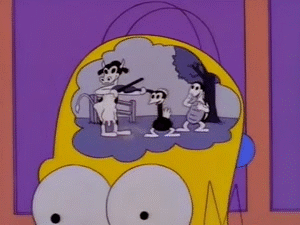
If I was feeling stressed or upset (or even joyful), I started becoming aware of those emotions — almost as if they were occurring within me and I was able to see it.
Nowadays, when I drift too far from equilibrium, I can sense it. (Not always, but more than before.)
I believe meditation can help you develop that recognition, which is extremely important. Why?
Because it’s astonishing to think how unaware most of us are of our own thoughts.
In essence, we live our lives oblivious to what’s going on in our heads. Oh sure, we THINK about things — solving problems, planning our days, what to eat for dinner, etc. — but very rarely do we separate the “thinker” from the “thoughts.”
Put another way, we identify strongly with our thoughts. We become them.
But you are not your thoughts.
Meditation can help you understand that.
From what I’ve gathered — and from the fine people at Headspace — it’s not really about clearing the mind of thoughts.
Let’s say you’re focusing on your breath. Distractions happen. That’s okay. You gently notice it, you feel glad you noticed it (because so many people don’t), and then you gently come back to your focus.
The more you do that, the better you get.
And that’s where change can start.
I Became Aware Of My “Patterns”
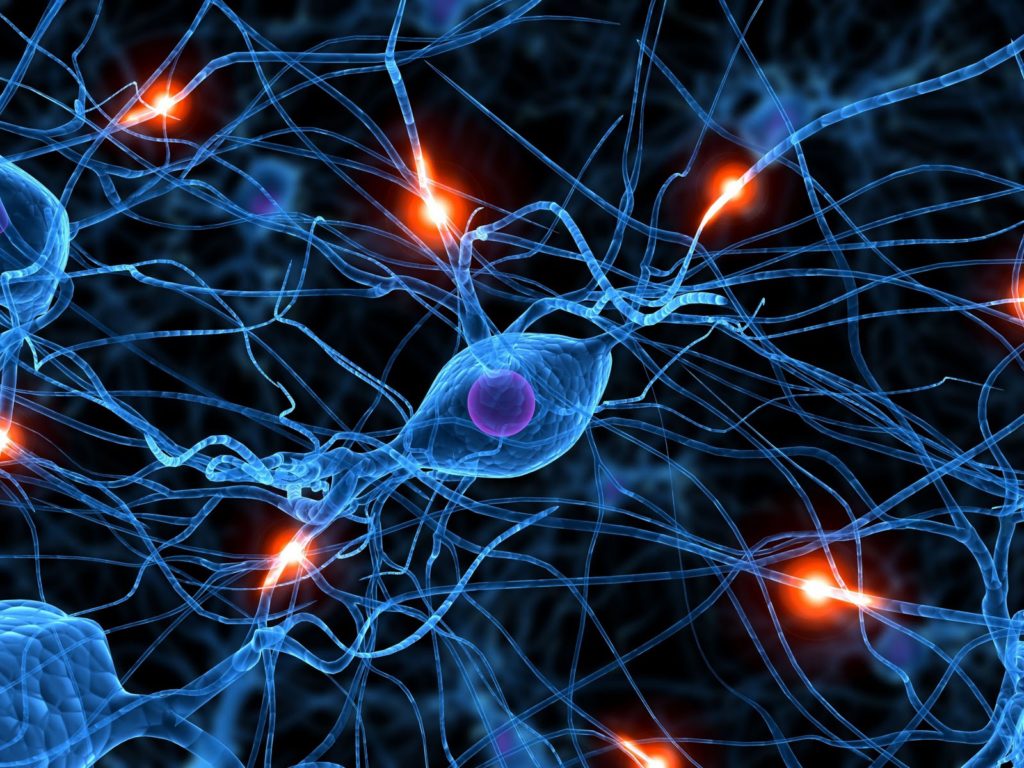
Anthony’s definition of a pattern:
Patterns are, in essence, habitualized ways of thinking triggered by some stimulus.
For example, “impatience.” Something happens. You respond with impatience. Violà! There’s your pattern.
Some people have a lot of patience. Some people have little. Some people have a lot of patience in certain areas, but little in others. Etc.
(Other sample patterns: Anxiety, sadness, pessimism, optimism, positivity, self-love, etc.)
Over the past few months, I started to realize that patterns dominate the vast majority of your life.
Meditation can help you become AWARE of those patterns, in a gentle and non-judgmental way. And that’s the first step to change.
But change takes time.
Think about it: It took YEARS to build the current patterns in your own mind. They don’t disappear overnight; they take time to diminish and release.
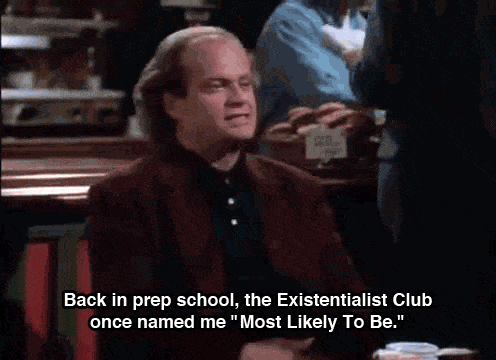
Even Headspace discusses this in its “Patience” pack. The narrator explains it might feel like nothing’s changing, but it is. Just as the present moment is the result of all the things you’ve done in the past, the future is the result of all the practices you’re creating now.
The root to real, lasting change is identifying those patterns and changing the ones you want.
And that requires patience, self-love, and time.
Think of it this way: Creating a new pattern is like learning a new language. I don’t care what anyone says; even if you hired someone to follow you 24/7 and teach you French, you will not become 100% fluent in a week. It takes time for the neurons in your brain to build new connections and strengthen synapses.
For best results, I try to pair meditation with new processes to create a new pattern. (I might write an article about that.)
I Did Feel “Better”
It’s not so much how I feel when I DO meditation…
…it’s how I feel when I DON’T DO meditation that matters.
Somedays, I feel there’s more going in my mind than usual. Somedays, I feel negative or irritable (usually after a bad night of sleep or when my HRV is low).
When I feel that way, meditation especially helps me press the “pause button” and create a little breathing room between me (the REAL me) and my thoughts (the NOT REAL me).
I might still feel irritable; but at least I’m aware it’s going on in the background.
Having a “buffer” can make a huge difference (if I choose to use it wisely).
I Did Feel Better Post-Workout
There is — I must say — one meditation that has rocked my world.
Headspace has a 10-minute “Recovery” meditation I listen to after every training session.
It’s amazing! After 60+ minutes of pounding my body with heavy weights, it gets my heart rate down FAST and helps relax my muscles and my nervous system. By the end, I almost feel like I haven’t even worked out at all.

That helps me relax faster so I can start recovery sooner and helps with my overall fitness.
Meditation: TL;DR
Even though I haven’t attained enlightenment yet (lolz), I’m still glad I created the habit.
It helps you become aware of your thoughts and patterns.
And that’s where its potential comes from.
If you haven’t started, I recommend some form of mindfulness in your day.
Bear down, grit your teeth, and just start. I wish I could say it was easier, but building habits — by its very nature — is difficult.
It’s supposed to be difficult.
But you’ll improve.
As for what the practice of meditation can do for you, I could keep going, keep writing, and keep explaining, but instead I’ll leave you with a story that pretty much sums it all up:
Long ago, a disciple went to a master and asked, “Could you give me a word of wisdom? Could you tell me something that would guide me through my days?”
It was the master’s day of silence, so he picked up a pad.
He wrote: “Awareness.”
“This is too brief,” the disciple said when he read it. “Can you expand on it a bit?”
So the master took back the pad and wrote: “Awareness, awareness, awareness.”
“Yes, but what does it mean?” asked the disciple.
The master took back the pad and wrote:
“Awareness, awareness, awareness means — awareness.”
FINE, ANTHONY. I’m going to do it. I’m not even going to wait until tomorrow, I’m going to start right after I post this comment. Right after I post this comment and use the bathroom and figure out if I still have a membership to Headspace.
And that recovery meditation? Did not know it existed. It is now going to become my post-workout thang so I can optimize recovery and seize the opportunity to be kicked and punched again sooner.
You may have just changed my life. I will let you know in a few years.
AWESOME!! 🙂 Glad to hear you’re taking action. I’m sure you’ll crush it.
Hope it helps. Keep me updated!
You are soooo right about patterns and becoming aware of them. Also when you wrote about patterns I got reminded about the book I’ve recently read by Sadhguru (I believe it is called Inner Engineering) and he explained that these patterns, like you described, are called Karma. And yeah at first I thought that Karma is something to do with bad choices you did in your life or your relatives did, all the way to past lives of your “family tree”, and you sort of “pay for them”. But this is actually a wrong misinterpretation in the western world. If I would use your own sentence with few words replaced – that would be much more accurate: “Karma is, in essence, habitualized way of thinking and acting triggered by some stimulus.”
I enjoy your articles greatly Anthony, thanks for writing!
Thanks for the comment, Kestutis. I might have to check out that book. 🙂
I wish you all the best in your journey.